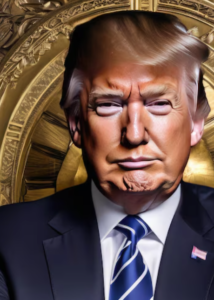$SBUX $BABA $MCD
#Starbucks #ChinaEconomy #CoffeeMarket #BrianNiccol #ConsumerTrends #GlobalExpansion #RetailStocks #CoffeeChain #EconomicGrowth #ChinaTrade #BusinessLeadership #MarketShifts
As Brian Niccol steps into his new role as CEO of Starbucks, one key market sure to demand his attention is China. Historically a tea-drinking nation, China has increasingly adopted coffee, particularly among its younger consumers. As the pace of this shift accelerates, it presents both opportunities and challenges for Starbucks, which has invested heavily in building a strong foothold in this emerging market. China is already the second-largest market for the coffee giant after the U.S., but maintaining growth will be crucial. The nation’s economy is undergoing rapid changes, including a shift toward higher consumption of premium goods, which could benefit Starbucks as it positions its brand at the higher end of the market. However, the competitive landscape is heating up as local coffee chains and emerging brands backed by Chinese conglomerates like $BABA continue to expand aggressively.
In addition to facing domestic competitors, Starbucks must also contend with new social and economic trends in China. The rise of delivery services, tech integration, and mobile ordering has altered the consumer experience in China’s retail sector. Starbucks has recognized this and partnered with Alibaba’s Ele.me for delivery services, but the competition is fierce. Local chains like Luckin Coffee, which offers a more tech-driven and cost-effective experience for consumers, are gaining market share swiftly. The challenge for Niccol will be to continue innovating within this fast-changing landscape and cater to China’s digitally native middle class, whose preferences and loyalty can shift rapidly. Starbucks must balance offering premium products with the tech integrations that Chinese consumers expect in their retail experiences.
Another factor Niccol must consider is China’s economic trajectory. The country is still a key engine of global growth, but rising economic uncertainties, such as shifts in trade policy or potential slowdowns in consumer spending, could impact Starbucks’ expansion plans. While middle-class disposable incomes have been growing, policymakers in China continue to navigate challenges like trade tensions and efforts to cool down overheated real estate markets. For Starbucks, these broader economic factors will play a role in determining how quickly it can hit its aggressive growth targets in China, including its aim to triple revenue in the country by the end of the decade. Investors will need to assess whether Starbucks’ premium pricing can thrive in the face of any potential economic slowdowns.
Looking at Starbucks from an investment perspective, Niccol’s leadership in China will likely be a critical factor in the company’s broader strategy to boost global revenues. Success in this key market could help counterbalance slower growth in more saturated regions like North America and Europe. With increasing competition from not only domestic players like Luckin Coffee and $MCD but also the emerging influence of technology giants like $BABA in shaping the retail space, Starbucks will need to navigate fast-changing dynamics in China’s coffee culture carefully. Investors should monitor how the company balances branding, pricing strategies, and tech innovations in this context, as these will significantly impact Starbucks’ share price and future earnings momentum.











Comments are closed.